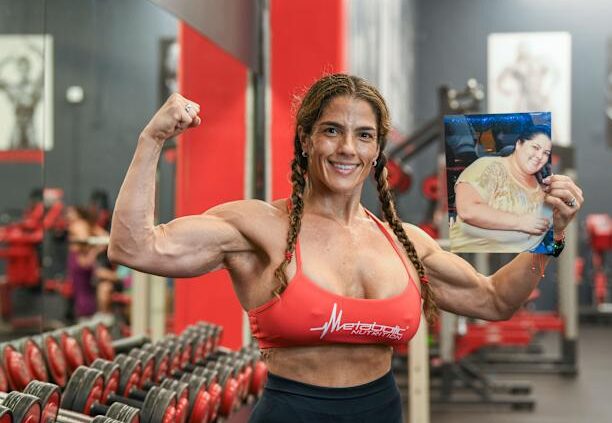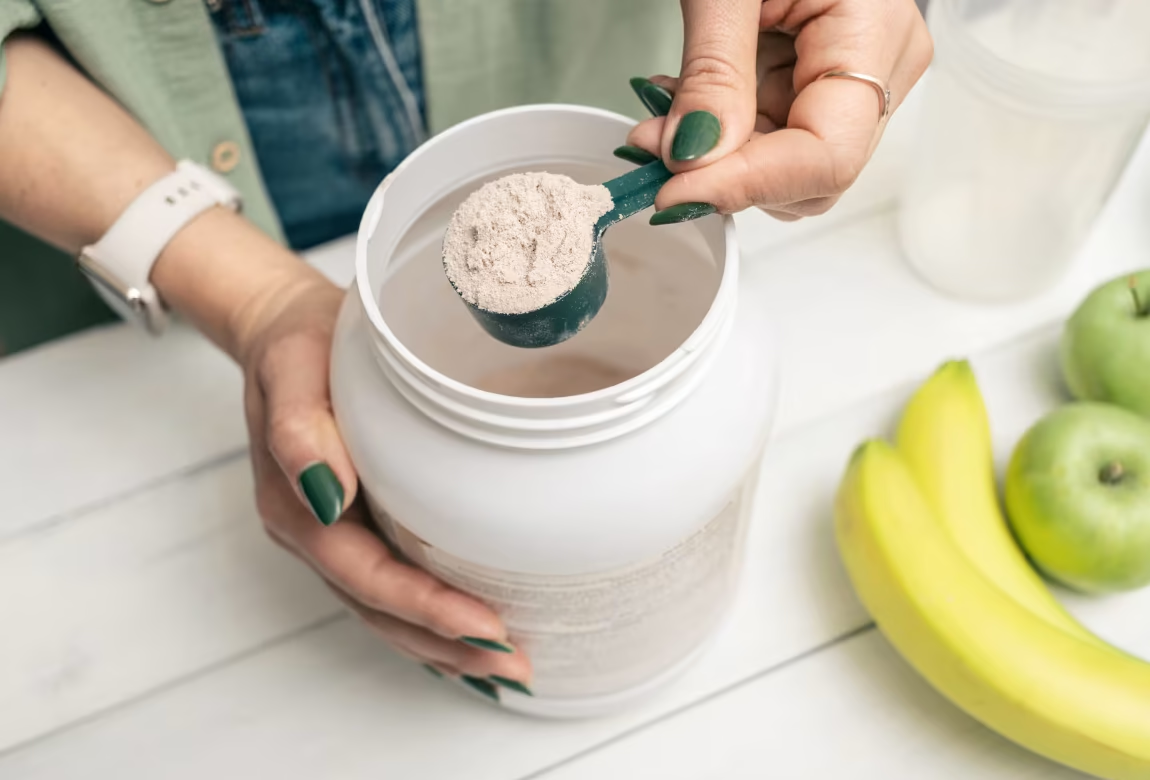When Monica Di Giacomo weighed 320 pounds, no trainer wanted to work with her. A decade later, the Miami woman is stepping onto a bodybuilding stage in a sparkling blue bikini, showing off the muscles she built with years of determination.
The after photos get the likes and praise. But Monica says it’s the before picture that makes her proudest.
That was the woman who, at 37, thought life wasn’t worth living. The woman who felt invisible, unwanted, and broken. The woman who walked into a gym asking for help, only to be turned away again and again. Trainers said she was too big, too unhealthy, and too likely to quit.
But she didn’t quit. She came back the next day, sore and tired. She kept coming back until she found a coach who changed her life in more ways than one.
This September, ten years after that first photo, she’ll compete in her first bodybuilding show in Fort Lauder dale. Her husband and friends will cheer her on. A photographer will capture the moment. But Monica says the most important picture will always be the one from day one.
“That woman is the reason I’m alive,” she says. “She showed up. She did the work. She’s why I’m here.”
Growing up in a world that prizes smallness
Monica grew up in 1980s Miami, when girls were told that smaller was better. She never fit that mold. While classmates wore neon mini skirts, she struggled to find clothes that fit.
She read magazines promising slim thighs in 30 days, worked out with Jane Fonda tapes, and starved herself like many women around her. Then came binge eating, hidden in shame.
Food became her comfort after her grandfather’s suicide, her mother’s death from cancer, and years with a partner who never introduced her to his friends. By her late 30s, the pain was numbed by late-night Oreos, oversized hoodies, and steady weight gain.
“I felt like I didn’t matter anymore,” she says. “I thought about ending my life. I felt useless, like I brought no value to anyone.”
A doctor’s blunt warning
At her 37th birthday checkup, Monica’s longtime doctor didn’t sugarcoat the truth.
“See you in three months,” she said.
“No,” the doctor replied. “Not unless you change. Otherwise, you won’t make it.”
Her cholesterol was in the 400s, double the safe range. Her blood pressure was 155/110. She was pre-diabetic. She weighed 320 pounds.
That conversation was her wake-up call. Within months she underwent gastric sleeve surgery. But she knew surgery alone wouldn’t save her.
“People think surgery is magic,” she says. “It’s not. You have to change your life.”
Learning to eat and train differently
At first, no trainers wanted her as a client. Too risky, they said. So she started alone, two days a week on a stationary bike and treadmill. Her goal wasn’t to look good. “I just wanted to live.”
Finally, she found a coach willing to take her on. For months she barely spoke, hiding her body and her feelings. “She didn’t smile for the first year,” her coach remembers. “Not until she’d lost 100 pounds.”
He taught her to lift weights, to eat real food, and to count macros instead of calories. She learned she didn’t need to starve herself. She could eat steak, chicken, vegetables, even carbs, and still lose fat while building muscle.
Now she eats nearly 2,500 calories a day, including 147 grams of protein and more than 300 grams of carbs.
“Everything I thought I knew about dieting was a lie,” she says.
Building strength inside and out
The journey wasn’t smooth. Monica cried through workouts. She questioned herself. She saw the teenage girl who couldn’t fit into skirts. Some days she stormed out of the gym. But she always came back.
Through heartbreak, job loss, and setbacks, the gym became her sanctuary. Over the years she shed 120 pounds, gained muscle, and no longer needed blood pressure, diabetes, or cholesterol meds.
She also found love. In 2022, she married her coach, Marino Di Giacomo.
“She was my heaviest client,” Marino says. “Now she’s my fittest. And she has my heart.”
Competing for more than a trophy
Today Monica weighs 137 pounds with 14 percent body fat. She’s preparing for her bodybuilding debut, training harder and tightening her diet. But she says the stage isn’t about showing off. It’s about showing what’s possible.
“I want women in midlife to know they matter,” she says. “That taking care of yourself is worth it.”
She looks at her old photos now with pride. “That girl saved me,” she says. “Without her, I wouldn’t be here.”
And now, she even loves her stretch marks.
“They’re cute,” Monica laughs. “Because they’re part of me.”






